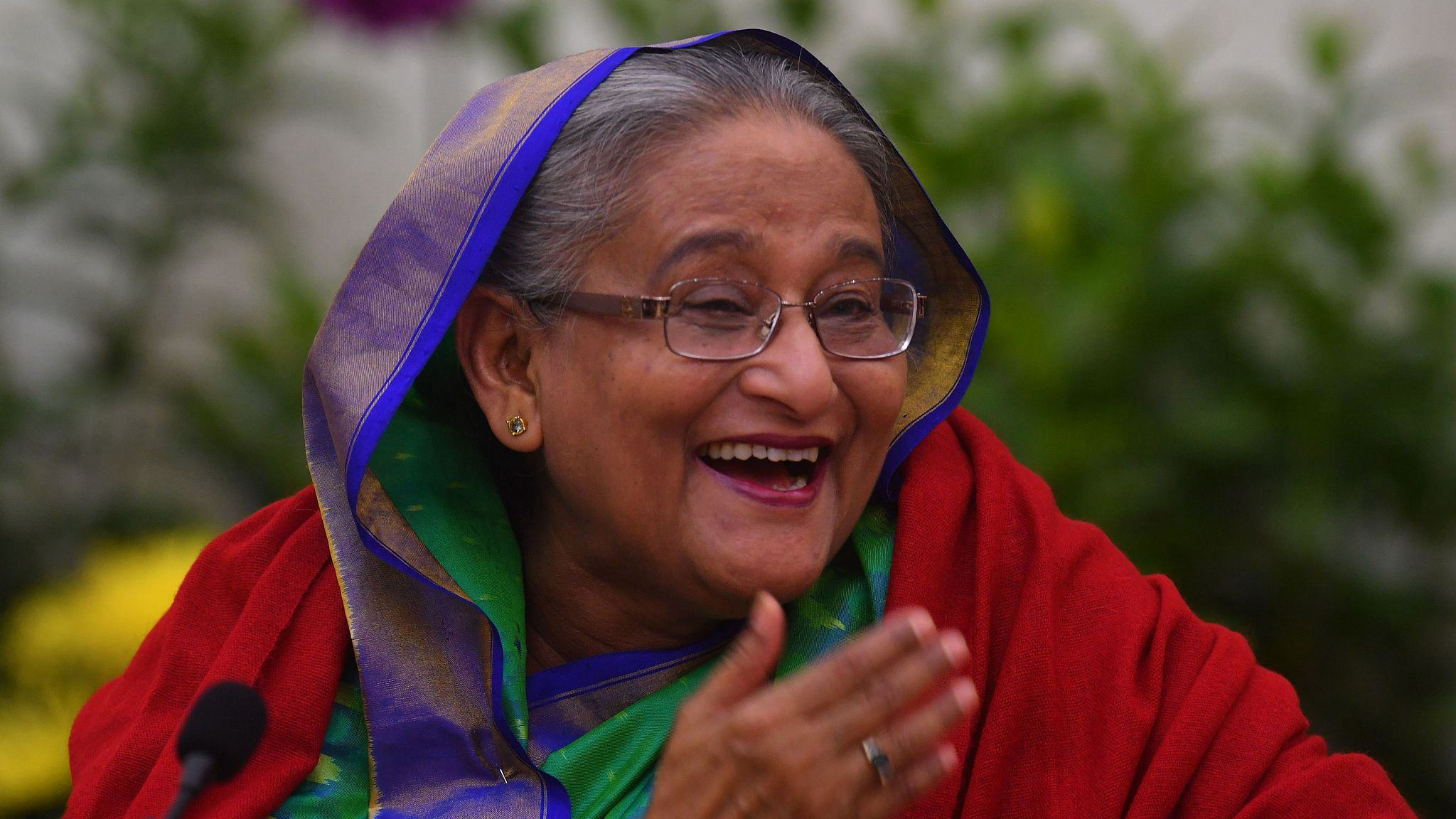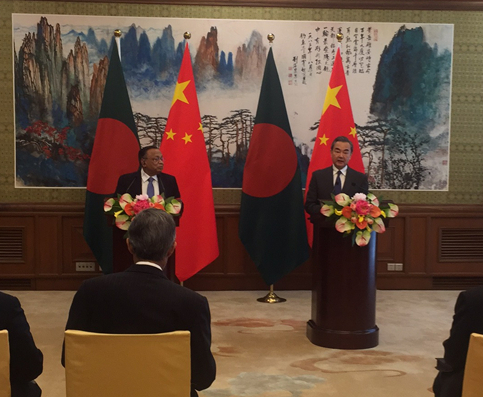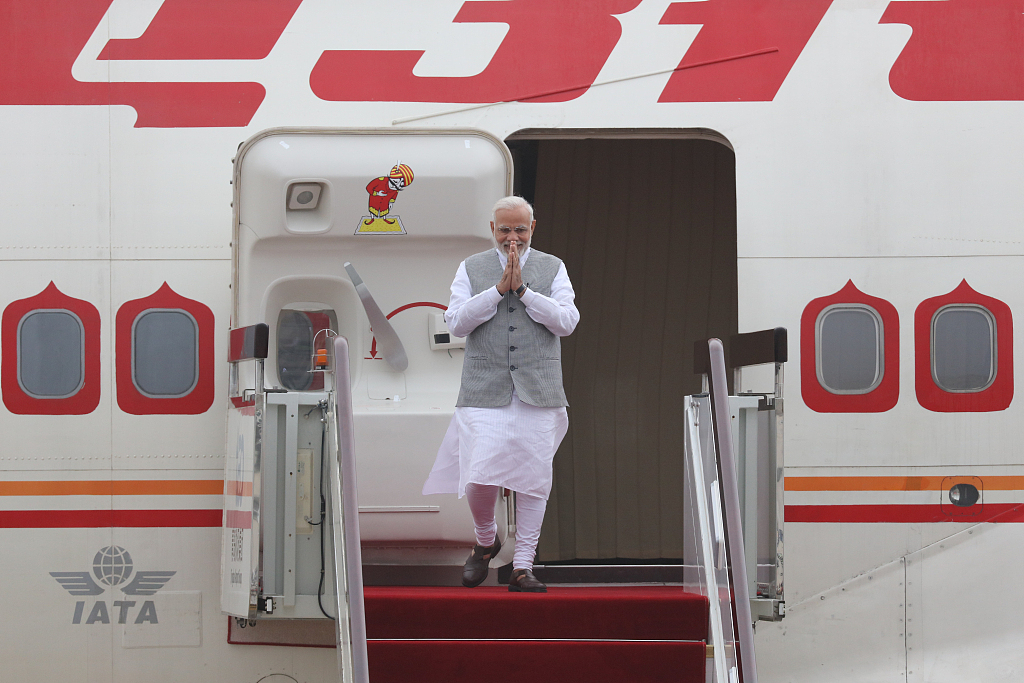

Editor's note: Andrew Korybko is a Moscow-based American political analyst. The article reflects the author's opinion, and not necessarily the views of CGTN.
Bangladeshi Prime Minister Sheikh Hasina will visit China from July 3 to 5, during which time she's expected to ink several agreements focusing mostly on power generation and economic cooperation, according to her country's media. The South Asian state has always enjoyed excellent relations with China and has recently become one of its largest overseas investment destinations, with some reports calculating that the People's Republic has approximately 30-billion-U.S.-dollars' worth of interests there already.
A lot of this is concentrated in the power generation industry, just like the lion's share of investments in the nearby China-Pakistan Economic Corridor (CPEC), though textiles are quickly catching the attention of Chinese businessmen nowadays too. Bangladesh is already one of the world's largest garment producers, and its role in this trade is only expected to increase as more companies come to appreciate its low-cost labor, high-quality production capabilities, and strategic location.
China and Bangladesh have yet to sign a free trade agreement even though Beijing proposed one back in 2014. Negotiations are presently ongoing and some progress might be made on this front during Prime Minister Hasina's visit, though no breakthrough should be expected at this point in time. Although the two sides are very close partners and located in near proximity to one another, they lack the physical connectivity between them that could take their trading ties to the next level and make the clinching of a free trade agreement a reality.

Chinese Foreign Minister Wang Yi (R) and Bangladeshi Foreign Minister Abul Hassan Mahmood Ali deliver speeches after the meeting in Beijing, China, June 29, 2018. /CGTN photo
China has been trying to pioneer the Bangladesh-China-India-Myanmar (BCIM) Economic Corridor for quite a few years but the project stalled after New Delhi expressed disinterest due to what some observers speculated might have been political reasons. India is opposed to anything having to do with the Belt and Road Initiative (BRI) because it believes that the CPEC, its flagship project, infringes on its sovereignty since it transits through Pakistani territory that it claims as its own per its maximalist approach to the Kashmir Conflict.
Even so, Indian Prime Minister Modi sent some positive signals to President Xi during their interactions at the SCO Summit in Bishkek and the G20 in Osaka, especially since the latter event saw the hosting of an informal summit between the Russian, India and Chinese leaders who collectively represent the Eurasian core of BRICS.
It's therefore not entirely unforeseeable that India might reconsider its inflexible stance towards the BRI and decide to selectively participate in some projects of shared interest such as the BCIM Economic Corridor, which in that case would naturally improve China and India's trading ties with Bangladesh and Myanmar.
After all, they already have converging interests in those two countries, so it makes sense to cooperate with one another instead of competing like some observers have suggested they're doing. Should that scenario eventually transpire, then Bangladesh and Myanmar would be all the more developed and stable because of it.
And that's exactly what those two neighboring countries need most of all and as soon as possible, too, since the Rohingya issue continues to plague their bilateral relations and endanger regional stability. Bangladesh is hosting around 700,000 Rohingya refugees that fled a large-scale anti-terrorist operation in Myanmar's Rakhine State back in 2017 that some countries criticized as excessive and possibly even deliberately targeting the civilian members of this demographic.

Indian Prime Minister Narendra Modi arrives in Qingdao to attend the SCO Qingdao Summit in Qingdao, China, June 9, 2018. /VCG Photo
In any case, the BCIM Economic Corridor probably won't make any progress until this humanitarian issue is resolved between Bangladesh and Myanmar, but it's here where China could play a constructive peacemaking role by helping to mediate a solution among its two partners. In fact, some Bangladeshi media reports even speculated that Prime Minister Hasina might discuss this issue during her upcoming trip to China and ask Beijing to encourage Naypyidaw to guarantee the safe and dignified return of Rohingya refugees.
It's too early to make any predictions about how exactly China could help to resolve this humanitarian problem, but it's nevertheless important to point out that it does indeed have the diplomatic sway to at the very least make any prospective proposals heard in Myanmar. Considering that China's vision is to ensure regional peace through equitable development and that the BCIM Economic Corridor would greatly facilitate its goal in this regard, then it wouldn't be too surprising if its leaders listen attentively to whatever Prime Minister Hasina might suggest that they do about this during her upcoming trip.
Altogether, while the bulk of the Bangladeshi leader's trip to China is expected to entail discussions and deal-making about various economic topics, there's also the possibility that the Rohingya issue will be brought up too since its ultimate resolution would greatly facilitate more economic cooperation between all sides through the BCIM Economic Corridor that would then become politically feasible for all participants.
(If you want to contribute and have specific expertise, please contact us at opinions@cgtn.com.)

Copyright © 2018 CGTN. Beijing ICP prepared NO.16065310-3
Copyright © 2018 CGTN. Beijing ICP prepared NO.16065310-3